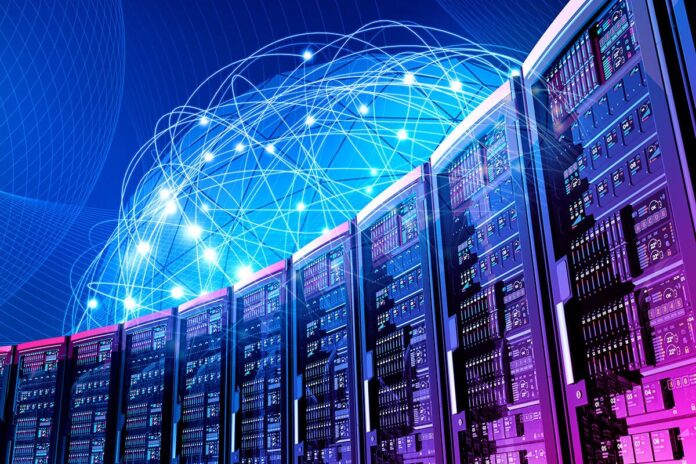Artificial intelligence is advancing rapidly, pushing the limits of what machines can accomplish.
However, these innovations require immense computational power to process vast amounts of data and perform complex tasks efficiently.
This is where high-performance computing plays a crucial role. By delivering unmatched processing speeds and scalability, HPC enables AI to train faster, analyze data more effectively, and make real-time decisions with precision.
From revolutionizing healthcare and autonomous vehicles to enhancing machine learning models and robotics, HPC is driving AI’s progress in ways once thought impossible.
Let’s explore how high-performance computing is shaping the future of AI.
1. Supercharging Machine Learning Models
HPC systems are giving AI models the power to learn at incredible speeds. With traditional computing, training machine learning models can take days or even weeks.
High performance computing accelerates this process by using multiple processors and parallel computing. This means AI models can be trained on vast datasets in a fraction of the time.
The faster these models are trained the quicker they can be applied to solve real-world problems. Whether it’s predicting stock market trends or identifying diseases in medical images, HPC makes it possible for AI to become more accurate and efficient.
2. Improving Data Processing Capabilities
AI relies heavily on data and the more data it can process the better it performs. HPC systems allow AI to handle enormous datasets that would be impossible for standard computers to manage.
This opens up new possibilities for industries such as genomics and climate science. For example HPC enables the analysis of the entire human genome which is a massive task that would require immense computational power.
- Handling enormous datasets faster than ever before
- Enabling breakthroughs in industries like genomics and climate science
- Helping AI uncover hidden patterns in data
- Unlocking new possibilities with massive data analysis capabilities
3. Revolutionizing Healthcare with Faster AI Predictions
In healthcare, HPC is playing a pivotal role in speeding up the AI processes that save lives. With vast amounts of medical data such as patient records and diagnostic images, AI can identify trends and make predictions that help doctors diagnose conditions faster.
For instance, a study by the University of California, Los Angeles (UCLA) demonstrated that an AI tool developed by Avenda Health could detect prostate cancer with 84% accuracy, outperforming doctors who had a detection accuracy of 67%.
By using HPC resources AI can analyze these datasets in real time providing quick results for clinicians.
4. Enhancing Natural Language Processing
Natural language processing or NLP is one of the most exciting areas of AI. It involves training AI to understand and generate human language. HPC systems enhance NLP by providing the necessary computing power to process vast amounts of text data.
With the help of HPC AI can learn to understand nuances in language and context much more effectively. These systems become smarter and they will be able to interact with humans more naturally and intuitively.
- Providing AI with the power to understand language nuances
- Improving chatbots, virtual assistants, and translation services
- Helping AI process and generate human language more effectively
- Advancing applications that interact with users naturally
5. Enabling Real-Time AI Decisions in Autonomous Vehicles
The rise of autonomous vehicles is heavily reliant on AI and HPC. Autonomous cars need to make split-second decisions based on a wide range of sensory inputs such as cameras and LiDAR. These decisions need to be made in real-time without any delays.
HPC provides the processing power needed to quickly analyze this data from multiple sources allowing AI systems to make accurate decisions on the road. This technology is paving the way for safer and more efficient self-driving cars.
The combination of HPC and AI is setting the stage for a future where autonomous vehicles are a common sight on our roads.
6. Advancing AI in Robotics and Automation
HPC is also advancing the field of robotics and automation. Robots are becoming more capable as they are equipped with AI systems that allow them to perform tasks such as assembly or surgery with precision.
To function properly these robots need to process large amounts of data in real-time. Whether it’s detecting defects in manufacturing or performing delicate surgical procedures HPC is providing the necessary resources for robots to make accurate decisions and perform complex tasks.
- Improving the precision of robots in tasks like assembly and surgery
- Enabling robots to process large amounts of data in real-time
- Supporting automation in industries like manufacturing and healthcare
- Paving the way for smarter and more efficient robotic systems
7. Accelerating AI Research and Development:
One of the most significant ways HPC is shaping the future of AI is by speeding up the research and development (R&D) process. With the power of HPC AI researchers can run simulations and test new ideas at a faster pace.
In the field of neuroscience, HPC has been instrumental in simulating large-scale neural networks, facilitating a deeper understanding of brain functions. For example, the Human Brain Project utilized HPC to model a network of 1.73 billion nerve cells connected by 10.4 trillion synapses, providing insights into neuronal activities.
This allows them to experiment with more complex algorithms and optimize existing models.
Conclusion
High-performance computing is not just supporting the future of AI it is driving it. From enhancing machine learning models to enabling real-time decisions in autonomous vehicles HPC is revolutionizing how AI operates across industries.
By providing the necessary computational power to handle large datasets and complex algorithms, HPC is making it possible for AI to learn faster and deliver more accurate results. As HPC continues to evolve the future of AI looks brighter than ever.
With AI continuing to shape our world, high-performance computing will remain at the heart of this transformation.



 Double Rewards Today – Amiribook Online Cricket ID for LSG vs CSK
Double Rewards Today – Amiribook Online Cricket ID for LSG vs CSK












